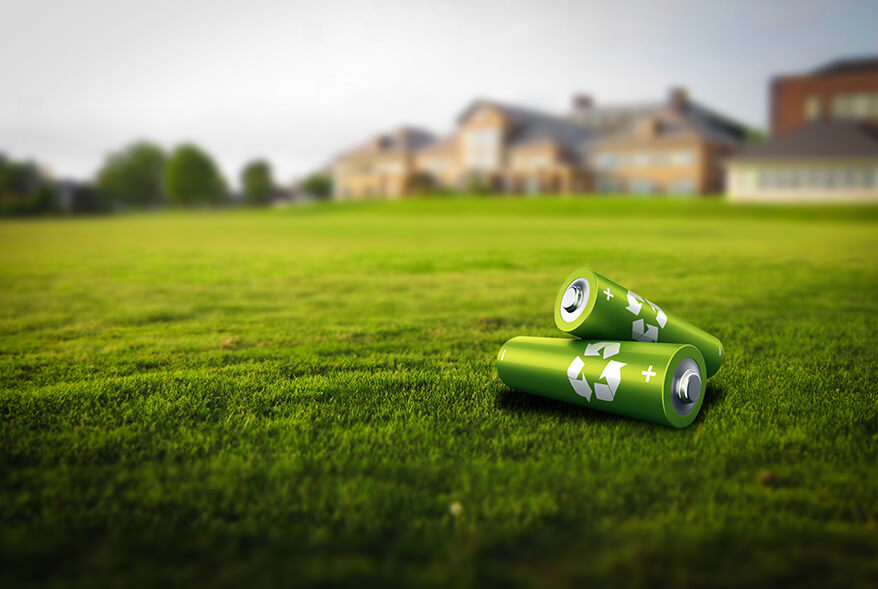Lithium-polymer Battery Vs Lithium-ion Battery
Feb 14, 2020 Pageview:1996
Introduction
One of the most intense debates in modern consumer electronics is lithium polymer battery Vs Lithium-ion battery. All and sundry have jumped into this debate with their half-baked opinions. Some of the discussion forums on this topic can get very nasty. Some even question if Lithium-polymer batteries exist or are just “Lithium-ion polymer” batteries and a lot of marketing hype.
Origins
Lithium-ion Battery: They are older than Lithium-polymer batteries and were first conceptualized in the early part of the 20th century. They grew in popularity during the electronics boom of the 90s and replaced the older nickel-cadmium batteries.
Lithium-polymer Battery: Lithium-polymer batteries came into reckoning in the 1970s. They led to the development of very thin designs with good battery life. There were always questions about their efficiency as compared to Lithium-on batteries. But their sleek designs opened up the development of smaller electronic devices.

Construction
Lithium-ion Battery: They are regular battery design with a liquid chemical electrolyte between its positive and negative terminals. They have high energy density and low self-discharge rate. The material used for constructing the terminals of the battery and the electrolyte used has a direct effect on the voltage, efficiency, capacity, and life of the Lithium-ion battery.
Lithium-polymer Battery: They are different from Lithium-ion batteries in that they have a solid chemical or gel-like electrolyte between the battery terminals. They are lightweight with good battery life.
Lithium-polymer and Lithium-ion battery packs should always be used with a protection circuit to prevent the cell from overcharging or completely discharging. Invest time to choose the correct circuit to ensure safety and a longer life for your Lithium-ion or Lithium-polymer batteries.
Key features
Lithium-ion Battery
High energy density and efficiency
No Memory Effect – This means it does not harder to charge the batteries over time.
Lower Costs
Good storage Life
Lithium-polymer Battery
Flexible and sleek design
Leakproof
Higher costs
Shorter Life Span
Which is better Lithium polymer battery or Lithium-ion battery?
There are pros & cons to both Lithium-polymer battery and a Lithium-ion battery.
Lithium-ion Battery – Pros & Cons: The most significant advantage of a Lithium-ion battery is its efficiency. They deliver power very efficiently for their size. They are the most used batteries on the planet and the economies of scale make them relatively cheaper to manufacture. They have good performance at both low and high temperatures. They have an average recharge life of 300-400 cycles. They are easy to dispose of and can be recycled easily. They are usually found in your smartphones and mobile devices.
On the cons side, there have been a few episodes of exploding Lithium-ion batteries on aircraft. This has raised safety issues and there are shipping restrictions on Lithium-ion batteries.
Lithium-polymer Battery – Pros & Cons: The outstanding feature of a Lithium-polymer battery is the credit card-thin design it is available. By using gel-like electrolytes, they don’t leak easily and are good for expensive devices. They almost match Lithium-ion batteries on performance. They have better low-temperature performance and good thermal stability
However, they are more expensive to manufacture. They also have a shorter life span and store lesser power.
In conclusion, there is no clear winner in the Lithium-polymer and Lithium-ion battery challenge. The choice is more to do with the features and power needs of your device.

What are the differences between the Lithium-polymer battery and Lithium-ion battery?
Build: Due to their chemical composition, Lithium-ion batteries are usually of a rectangular/ cylindrical shape. As they have a gel-like electrolyte in them, Lithium-polymer batteries are available in various designs and sizes.
Power Storage and Efficiency: Both Lithium-ion and Lithium-polymer batteries have comparable efficiency while Lithium-ion batteries have superior power storage.
Weight & Leakproof: Lithium-polymer batteries are lightweight as compared to Lithium-ion batteries and have a lower chance of suffering from electrolyte leak.
Performance at low Temperatures: Lithium-polymer batteries have a slightly better performance at lower temperatures as compared to Lithium-ion batteries.
What is a “True Lithium-Polymer Battery”?
Lithium-polymer batteries used a dry-solid electrolyte which has now stopped. Modern Lithium-polymer batteries use a porous polymer-like chemical as an electrolyte which is a remnant of the now-abandoned true-plastic battery project. Hence they have “Polymer” in their name. There are, however, many Lithium-polymer batteries in the market which are regular Lithium-ion batteries in a plastic or polymer casing and are marketed as Lithium-polymer batteries.
Make sure you are not a victim of this gimmick when in the market for a Lithium-polymer battery.
Key factors to get more out of your Lithium-polymer and Lithium-ion Battery
Avoid completely discharging your Lithium-ion batteries: A completely discharged lithium-ion battery needs a special tool with a boost function to recharge the battery which reduces battery life.
Avoid heating of Lithium-polymer batteries: The lithium-ion battery in your device is not so much susceptible to overcharging as it is to heat. If you are plugged into a power socket, it is a good idea to occasionally remove the device battery and have good airflow to keep your battery cool.
Store Lithium-batteries with a little charge: If you are storing Lithium-ion batteries, charge them a bit before storing. This ensures they lose their charge slowly and when the charge drops low, the safety circuit kicks to prevent any accidents.
Keep your Lithium-polymer batteries at room temperature: Heat drastically reduces the life of your Lithium-ion and Lithium-polymer batteries. Don’t leave your device outdoors or in your car for a long time.
Which battery lasts longer Lithium-polymer or Lithium-ion battery?
A key factor to consider is that Lithium-ion batteries give more usage time for the same weight as compared to a Lithium-polymer battery. Lithium-polymer batteries have marginally lesser usage time but deliver much higher power output for the same weight. Lithium-ion batteries have a higher life cycle than Lithium-polymer batteries.
As a general rule, Lithium-polymer batteries give a better performance and last longer in devices with higher power requirement and in devices that need accelerated power. Lithium-ion batteries give a better performance and survive longer in devices with stable power requirement.
Proper use and good maintenance can greatly enhance the life of your Lithium-ion and Lithium-polymer battery.
- Prev Article: Lithium Batteries Ion Battery Monitoring System-Definition And Working
- Next Article: How many volts are in a Lipo cell?
Leave Message
Hottest Categories
-
Hottest Industry News
-
Latest Industry News










